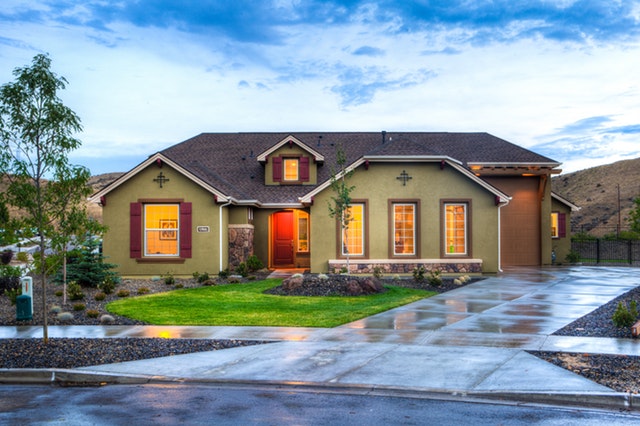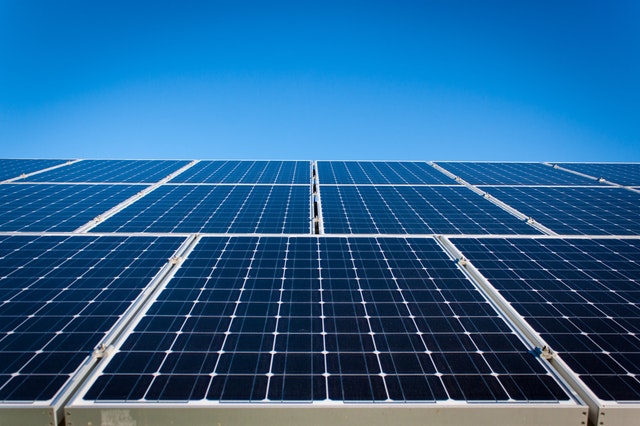 No doubt you’ve been told that curb appeal will help sell your home. But if money is short you’ll need to do some curb appeal on a budget tricks.
No doubt you’ve been told that curb appeal will help sell your home. But if money is short you’ll need to do some curb appeal on a budget tricks.
Following are some inexpensive curb appeal tips that really work.
Fresh Coat Of Paint
A fresh coat of paint adds curb appeal without busting the budget. With a gallon of paint you can freshen up the window ledges, shutters, front door and the garage door. Add a fresh coat of paint to decks and railings, and street lampposts, as well.
Solar Lighting
You can find inexpensive solar lighting stakes at discount stores around the country. Add these to the edges of the driveway, along the front pathway and around front hedges for nighttime curb appeal.
Metallic Paint
If you can’t afford brand new hardware for your front door, consider investing in a small tub of metallic paint. Refinish the doorknob, door knocker and the metal porch light fixtures.
Annuals
Landscaping can be pricey, but with a couple dozen inexpensive blooming annuals you can transform your front walkway. Choose the most colorful annuals you can find at your local discount store. Plant right alongside the path leading to your front door. Fill in empty spaces in between plants with colored mulch.
Wreath
Simply hanging an attractive wreath on your front door adds a tremendous amount of curb appeal that can be seen all the way from the road. To avoid marring the wood, use a wreath hanger that installs over the top rim of the door.
New House Numbers
Pick up a set of brand new house numbers from your local hardware store. Hang them front and center next to your mailbox on your porch, on your mailbox post or over your garage door.
Refreshed Mailbox
Mailboxes get ignored so many times. It’s a shame because it’s easy to add curb appeal with an inexpensive magnetic mailbox cover. If you have a different kind of mailbox, consider just giving it a fresh coat of spray paint.
Bird House
Another inexpensive way to add curb appeal is with a decorative bird house or similar lawn ornament next to your front porch. These are on long stakes that you simply push into the ground. Tick one into your hedges for a charming look.
You can complete these inexpensive curb appeal tips with a minimum of time and money. Yet, they’ll have a similar impact as if you spent hundreds of dollars.
Be sure to contact your trusted real estate professional for more tips and tricks on how to ramp up curb appeal that will generate the most interest in your property.
 Houses for a dollar. Millions (perhaps billions) in tax incentives. Reclaiming contaminated land. Partnering with Walmart to build town centers. What do all of these things have in common? They are examples of exciting redevelopment opportunities in different parts of America.
Houses for a dollar. Millions (perhaps billions) in tax incentives. Reclaiming contaminated land. Partnering with Walmart to build town centers. What do all of these things have in common? They are examples of exciting redevelopment opportunities in different parts of America.
 When a homeowner stops making regular mortgage payments, the bank can foreclose on the property. This means that the bank takes possession of the property in an attempt to recover the debt the homeowner owes. In some cases, the bank may try to recover this debt by selling the property at auction. In other cases, the bank will simply list the foreclosed home for sale.
When a homeowner stops making regular mortgage payments, the bank can foreclose on the property. This means that the bank takes possession of the property in an attempt to recover the debt the homeowner owes. In some cases, the bank may try to recover this debt by selling the property at auction. In other cases, the bank will simply list the foreclosed home for sale. Earth Day is celebrated each year in April to remind us all of the benefits of ecologically-sound living that is more in harmony with Mother Earth. There is quite a bit of positive news when it comes to going “green.” There are significant benefits for home sales.
Earth Day is celebrated each year in April to remind us all of the benefits of ecologically-sound living that is more in harmony with Mother Earth. There is quite a bit of positive news when it comes to going “green.” There are significant benefits for home sales. You’ve finally found the perfect home for your family. Now the only thing standing between you and domestic bliss is the loan process. Use these techniques to shorten the amount of time between placing your bid and getting the final approval on your new home mortgage.
You’ve finally found the perfect home for your family. Now the only thing standing between you and domestic bliss is the loan process. Use these techniques to shorten the amount of time between placing your bid and getting the final approval on your new home mortgage.